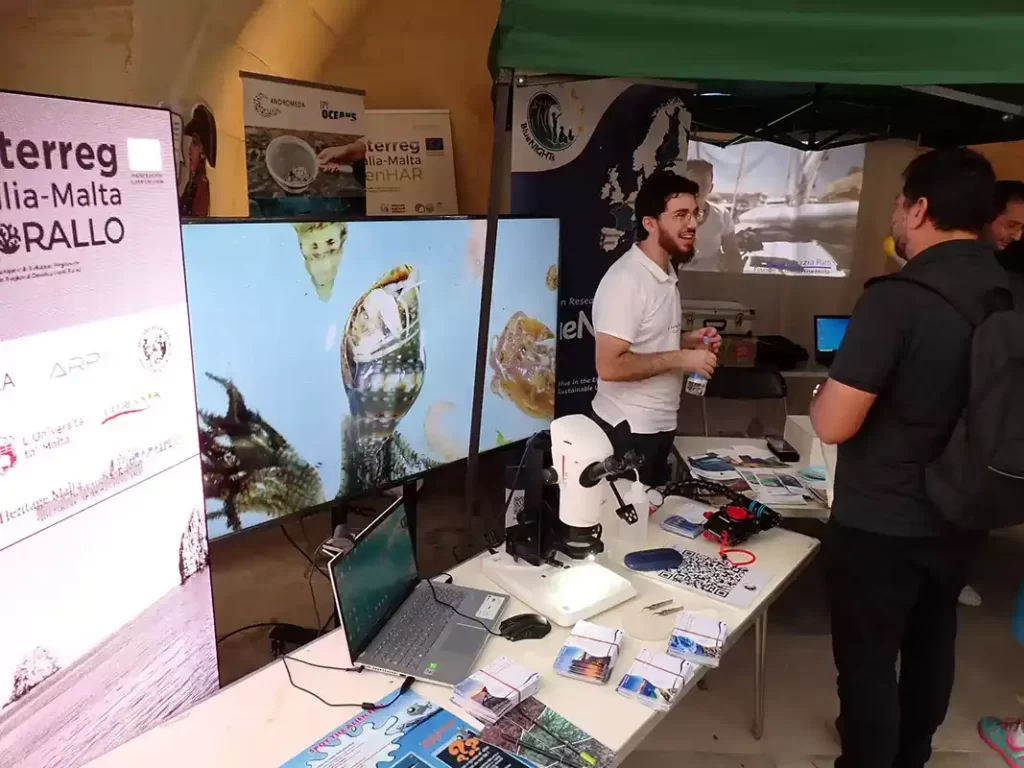The Night

The European Researchers’ Night takes place every year, on the last Friday of September. It supports events that can last up to two days: they can start on Friday and continue the following day. Pre-events, prior to the main event, and related post-events, such as wrap-up meetings or small-scale follow-up events, can also be organised.
It is the occasion for a Europe-wide public and media event for the promotion of research careers, in particular focused on young people and their families.
The European Researchers’ Night targets the general public, addressing and attracting people regardless of the level of their scientific background, with a special focus on families, pupils and students, and notably those who do not have easy access to, and thus are less inclined to engage in STEAM fields (science, technology, engineering, arts and mathematics) or research activities.
The European Researchers’ Night also bring researchers to schools to interact with pupils at any time during the project duration. The Researchers at Schools activities allow researchers and pupils to interact on societal challenges and on the key role of research to address them. Pupils thus also learn directly about research projects and initiatives related to EU main priorities.

BlueNIGHTs is a new project that aim to bring the many facets and faces of people working in OCEAN SCIENCE & RESEARCH to the general public of Europe by organising a series of interconnected EU BLUE Researchers Nights to demonstrate that the OCEAN can be a source of inspiration, an object of interest/study, and a field of investigation for people with very different backgrounds, hobbies and passions, including science, history, technology, sociology, pedagogy, economics, art, design, etc.
The European Researchers’ Night (ERN) events organized, both in 2022 and 2023, under the BlueNIGHTs project will take advantage of the EU4Ocean initiative. The Blue ERNs events will take place at least in 9 cities in different EU RSAs: Venice and Malta for the Mediterranean RSA, Tulcea and Galati for the Black RSA, Helsinki for the Baltic RSA, Lisbon and Aveiro for the Atlantic RSA, Boulogne sur Mèr for the English Channel/North RSA, Strasbourg for the inland areas. Few more locations are expected in Portugal and in Italy.
It bring together researchers whose everyday work addresses ocean challenges and solutions in a truly collective European initiative. Far from hiding in their labs and institutes, researchers from all disciplines demonstrate how their marine research is deeply rooted in reality and aware of the complexities of the human-ocean interaction and marine ecosystems.
BlueNights also demonstrate how science can: bring knowledge for designing a better present and a brighter sustainable management of the ocean; help shifting gears and direction to strengthen resilience in societies; strengthen relationships and networks sharing different kinds of knowledge and skills. A renewed alliance between all kind of “sciences” and society represents indeed an essential step supporting resilient communities and increasing our capacity to adapt to a fast-changing world and meet the 2030 Agenda goals, and in particular those of the SDG

